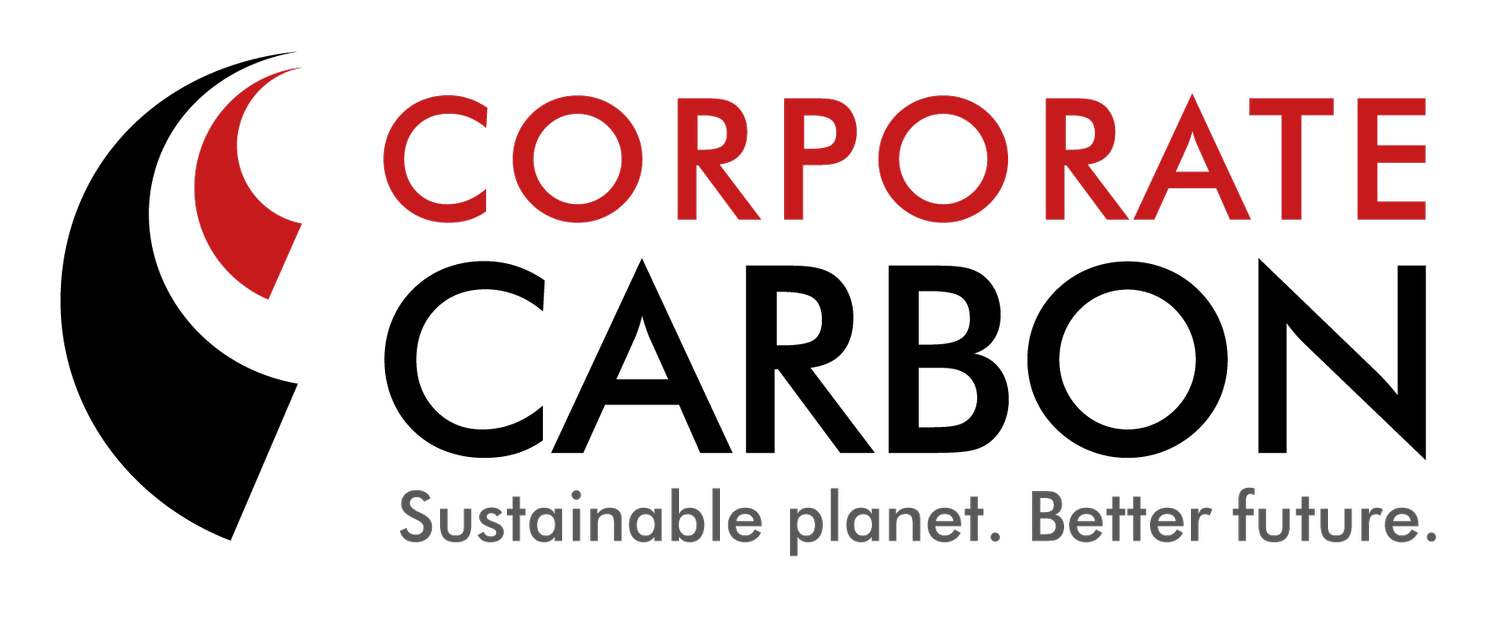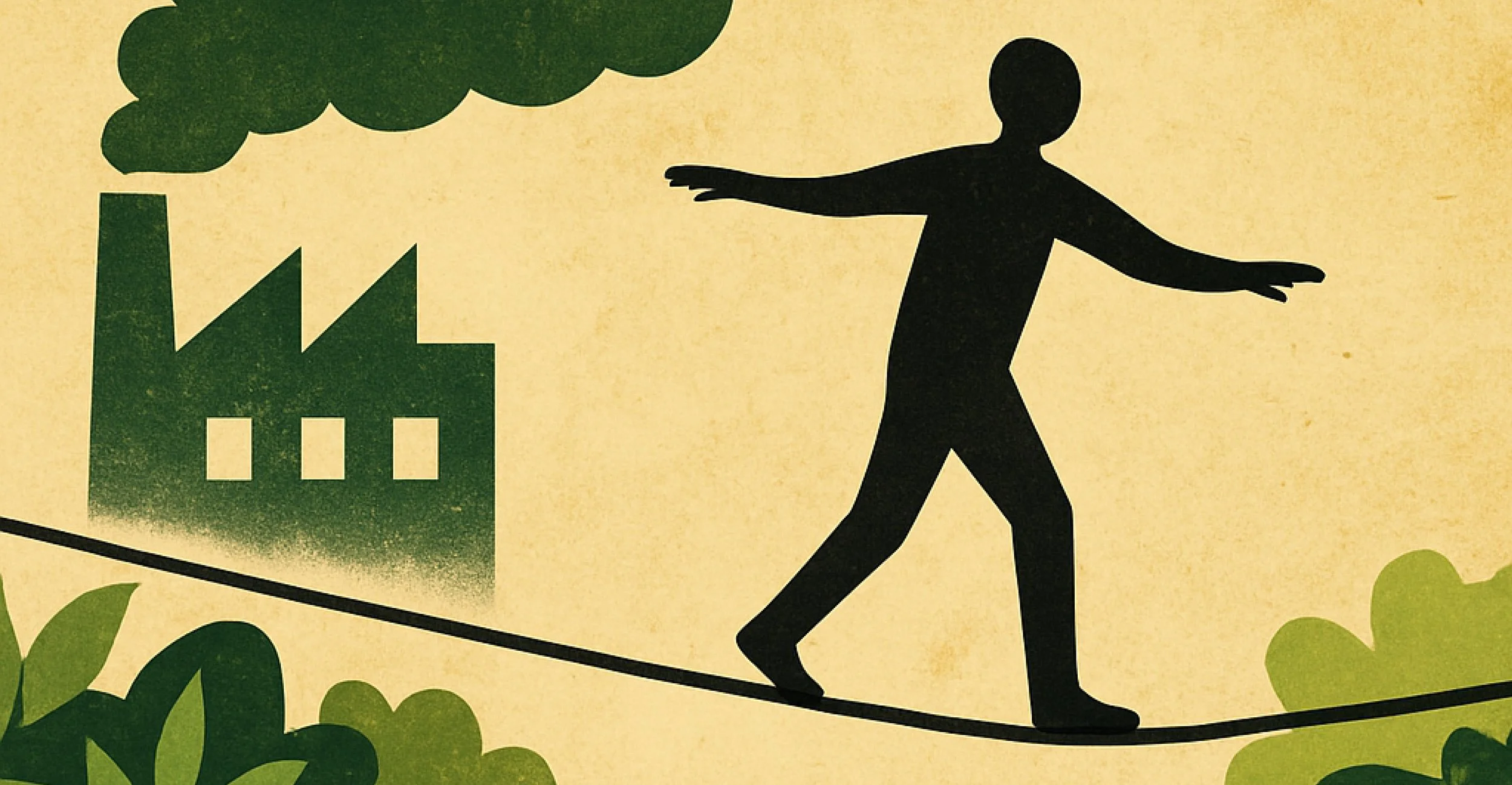From greenwashing to greenhushing: navigating the communication tightrope in carbon markets
Guest post by Claire Maloney, Founder & Director of The Bravery, published for World PR Day
In a moment of reckoning as global temperatures rise, weather crises become more frequent and our government battles disinformation and misinformation about climate, it’s becoming harder for sustainability leaders to communicate.
Businesses are navigating a rapidly evolving landscape marked by rising mandatory ESG reporting requirements and intensifying climate-related stakeholder expectations. Today, shareholders, partners, and policymakers have unprecedented access to, and demand for information - and they’re increasingly stepping into the role of informed, vocal critics of corporate greenwashing and inaction.
In the past month we’ve seen the Australian Competition and Consumer Commission (ACCC) bring two deceptive sustainability claims lawsuits forward [1], and a landmark greenwashing case succeed in Australian courts [2].
Faced with rising scrutiny and regulatory crackdowns many organisations are growing hesitant. Some are even going quiet.
But the antidote to risk isn’t silence. It’s substance.
We’re working in a communications landscape where transparency is justifiably non-negotiable. For carbon project developers that means leaning into the complexity, and communicating in a way that meets the moment with humility, clarity and credibility. The stakes are too high to do otherwise: if not, they may enable businesses to avoid direct emissions reductions and derail the Australian government’s 2035 target.
This World PR Day, let’s take stock of the state of sustainability communications in our sector to mark a path that allows leaders to forge ahead with confidence.
1. Silence isn’t safe. Greenhushing has real risks.
Some companies are so afraid of being labelled greenwashers that they’ve stopped talking about sustainability altogether. This trend, known as greenhushing, has caught the attention of regulators.
ASIC Chair Joseph Longo recently warned; greenhushing is becoming more prevalent, as companies pull back from disclosing climate commitments in an attempt to avoid scrutiny - a move that ultimately risks misleading stakeholders and undermines transparency [3].
For those operating in the carbon market, this silence is especially dangerous with trust in carbon credits under constant debate. The need for credible, proactive communication has never been greater.
We need to not only deliver on impact but also show our work. Clearly explaining project design, claims, and verification with an open-book mentality.
When leaders go quiet, they leave a vacuum. And in a vacuum, the loudest critics and naysayers will always fill the space, having a significant knock-on effect on the public conversation around climate action.
The silence can slow progress, stall innovation and preventing knowledge-sharing. On top of this it erodes trust - lack of transparency breeds scepticism and doubt - and reduces accountability, making it much harder to track goals or hold companies to their claims.
Ultimately this undermines the movement, missing out on opportunities to lead, inspire and improve.
2. Substance over spin: it’s about proof, not polish.
The era of glossy sustainability storytelling is over. What’s needed now is evidence-based, plainspoken communication that educates, informs, and earns trust.
Regulators are now actively investigating businesses that can’t prove what they’re saying. But beyond compliance, this is about credibility.
Communications should be built on three tiers of credibility: proof (evidence), partners (independent validation), and process (transparency of how decisions are made). Together, these create a foundation that strengthens communications away from potential grey areas, and therefore greenwashing, and builds real, long-term trust with stakeholders.
For project developers, this might look like publishing methodology overviews in accessible language or explaining why a particular baseline was chosen. These details may seem dry - but in this environment, they matter.
3. The carbon conversation needs more nuance
The carbon market conversation is increasingly polarised. But real progress doesn’t live in extremes. It lives in informed, constructive dialogue.
Developers have critical frontline experience: insights into what’s working on the ground, where reforms are succeeding, and what complexity really looks like. This insight is valuable not just to policymakers and regulators, but also to investors, landholders, and the public.
Now is the time for carbon leaders to step forward with context and solutions. That means investing in thought leadership, sharing learnings from both success and failure, and being part of the broader conversation on integrity, co-benefits, and evolving methodologies.
Showing up constructively and consistently is the key to adding value to the conversation - not just noise.
Lack of communication is a risky strategy
Communicating in a contested space is hard. But choosing not to communicate is a risk in itself. As scrutiny grows, so too does the need for thoughtful, transparent, and substantive engagement from those driving solutions.
This World PR Day, our message to leaders is simple: keep talking. It’s the only way to build a carbon market grounded in science, integrity, transparency, and create real impact on climate change.
References:
Australian Gas Networks in Court over alleged greenwashing in renewable gas campaign
Energy Australia apologises over claims of 'greenwashing' with Go Neutral products
Header image credit: AI-generated via OpenAI ChatGPT, 2025
Claire Maloney, Founder & Director
The Bravery
About Claire Maloney
Claire Maloney is a communications leader with 18-years of expertise in media and social media within current affairs and issues-rich environments.
As Founder, and Director of The Bravery, Claire produces creative, and high-impact strategies and campaigns.
With experience in multiple categories including waste and recycling, circular economy, energy and carbon Claire has also served on multiple boards including the education empowerment NFP, One Girl.


